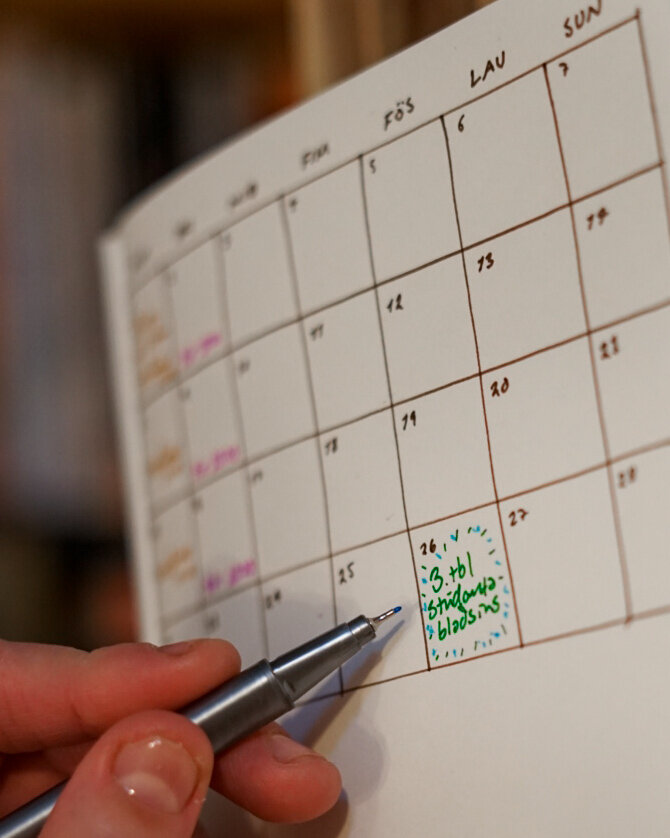Want to Learn to Get Organized?
Translation: Julie Summers
Many of us see the start of a new year as a new beginning, a time to set goals for ourselves and work on getting organized. Getting in the habit of setting goals is great, but it’s important to take small, realistic steps toward a larger objective. There are many different ways to get organized and stay focused on the big picture. I’m going to give you a few good tips that may come in handy both in your studies and your daily life.
Focus on one week at a time and write down:
The assignments you need to finish that week
The things you want to get started on
Your schedule for the week
Things you want to do for yourself (hobbies, exercise, etc.)
I’m big on using planners, and I write down the entire week’s assignments and projects. That way I have a good overview and there’s less risk that I’ll forget something. I like to set aside a specific time or day for each project. For example, I write down the assignments I need to work on, decide when in the week I want to do each one, and write them in my planner accordingly. Often, I also write a checklist for the week, which I find motivating.
Those of you who don’t want to use a planner, always forget it somewhere, or forget to write in it can use your phones instead. Most people these days have smartphones, which can be brilliant for organization. Here are a few ideas:
Photos / Sædís Harpa Stefánsdóttir
Notes: for checklists, grocery lists, class notes, little notes to yourself, etc.
Calendar: for keeping track of due dates, classes, and homework
Notion (app you have to download): this one’s for list lovers - you can use this app to make checklists for different assignments and set them up in various ways
I enjoy working with graphics and presenting information visually. When I’m in school, I want to have my timetable visible to remind me of my schedule. Those of you at the university are familiar with Ugla and Canvas, but the timetable there can sometimes be confusing. I create my own timetable using the website Canva.com, which lets you present information visually without any graphic design training. I use it regularly for visual communication and organization. For instance, when I plan my family’s summer vacation, I create monthly overviews or idea lists.
Family wall calendar:
Speaking of families, I have a husband and kids, which means doctor’s appointments, school breaks, and special events, so we have a family calendar on the wall. Each month is presented on one A3 page with a column for each family member. Here are a few ideas of the things you can put on your family calendar:
Photos / Sædís Harpa Stefánsdóttir
In-service days at the preschool or elementary school
Holidays
Parent-teacher conferences
Medical appointments
Events
First and last days of school
Visits
Trips
Finally, don’t forget to take it one week at a time. Looking too far ahead and seeing all the upcoming assignments you still have to finish can be stressful, but with a bit of discipline and time management, you’ll get through it. One tip for school: when your instructor mentions some assignment, homework, or a book you have to read, write it down right away! Hopefully, these tips will help you be a model student and reach your goals, whether in your studies or life in general.


